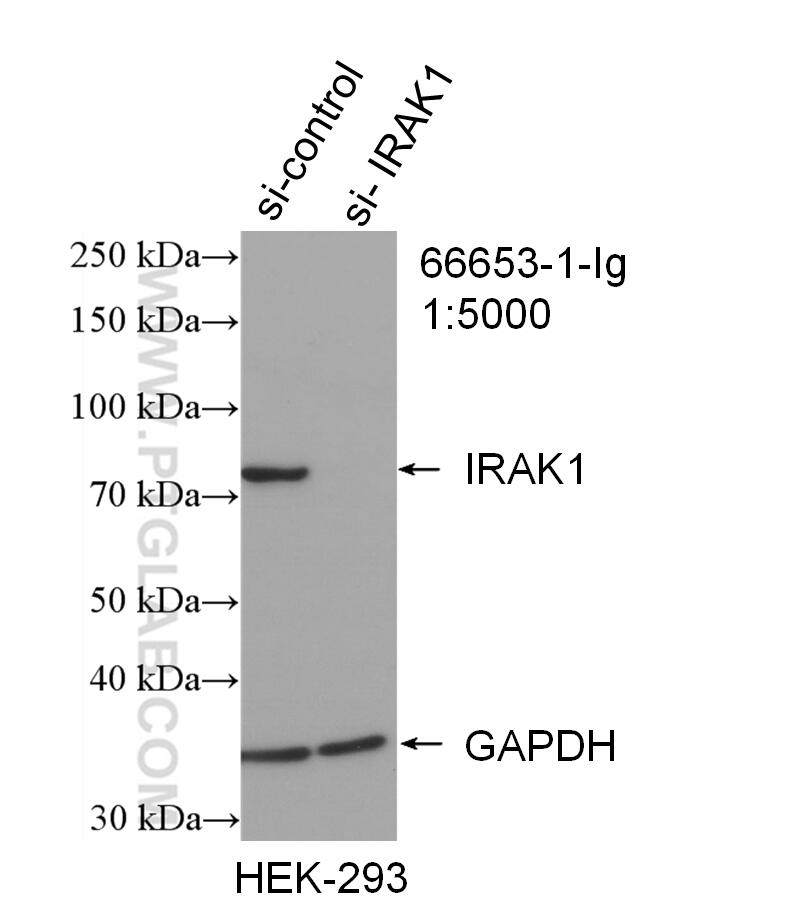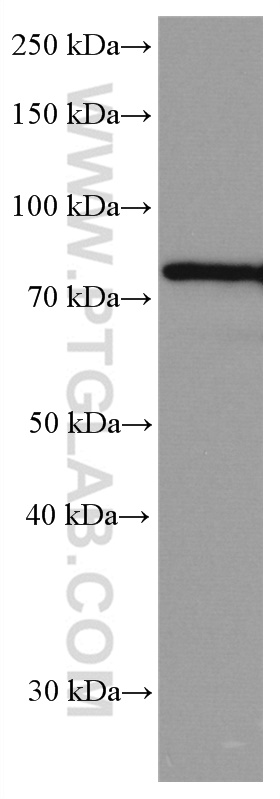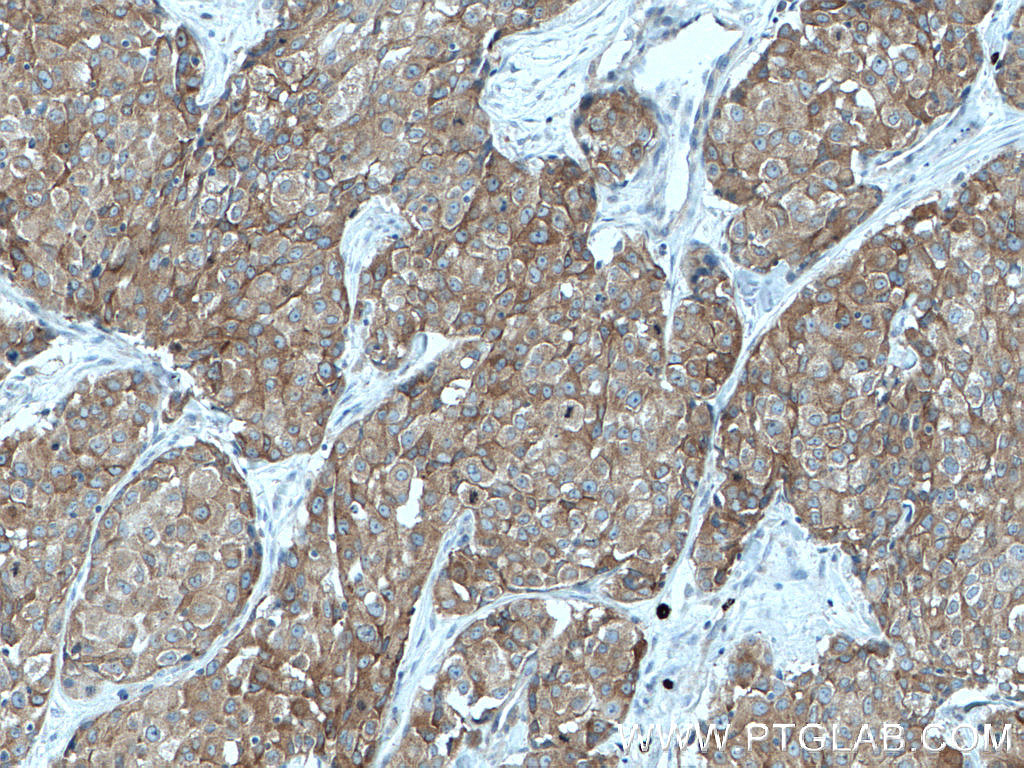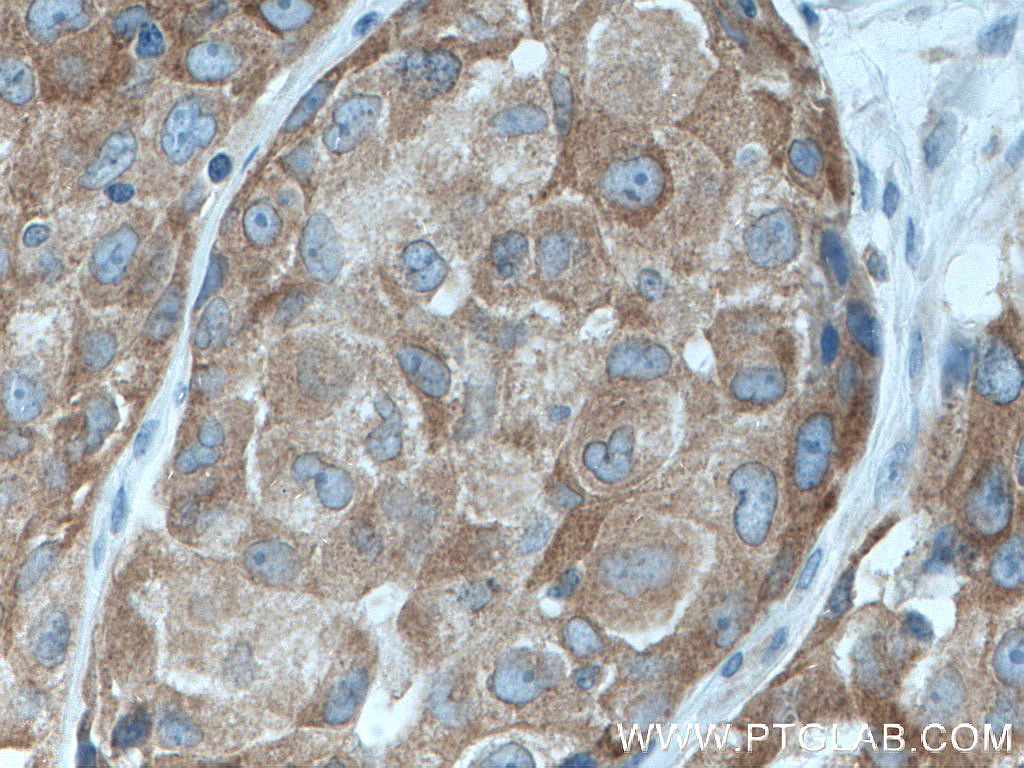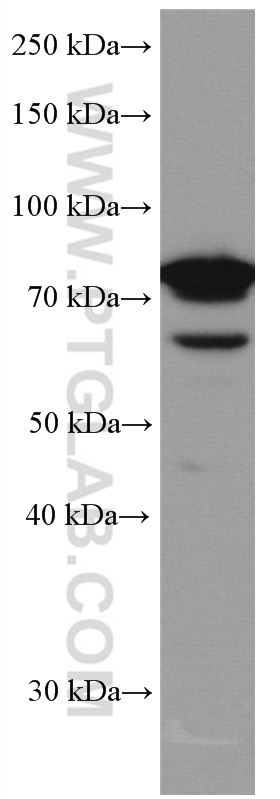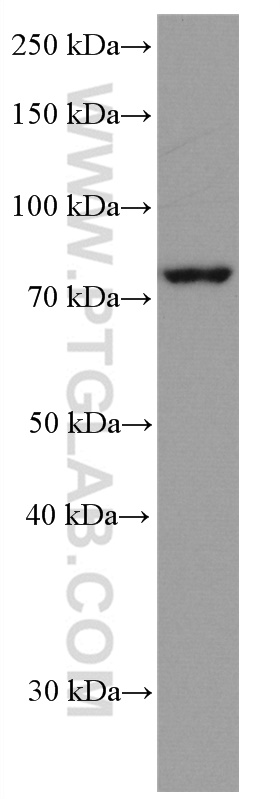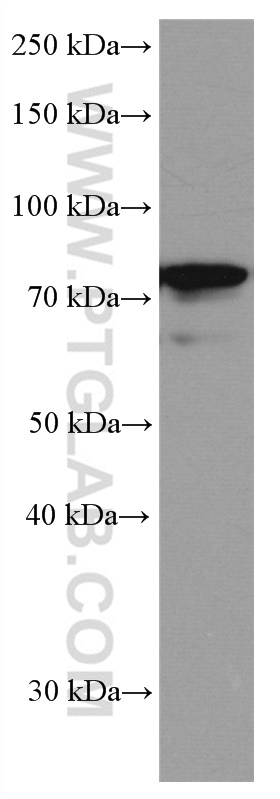验证数据展示
产品信息
66653-1-PBS targets IRAK1 in WB, IHC, Indirect ELISA applications and shows reactivity with Human samples.
| 经测试应用 | WB, IHC, Indirect ELISA Application Description |
| 经测试反应性 | Human |
| 免疫原 | IRAK1 fusion protein Ag0728 种属同源性预测 |
| 宿主/亚型 | Mouse / IgG2a |
| 抗体类别 | Monoclonal |
| 产品类型 | Antibody |
| 全称 | interleukin-1 receptor-associated kinase 1 |
| 别名 | IRAK, IRAK 1, IRAK1, pelle |
| 计算分子量 | 77 kDa |
| 观测分子量 | 80 kDa |
| GenBank蛋白编号 | BC014963 |
| 基因名称 | IRAK1 |
| Gene ID (NCBI) | 3654 |
| RRID | AB_2882010 |
| 偶联类型 | Unconjugated |
| 形式 | Liquid |
| 纯化方式 | Protein A purification |
| UNIPROT ID | P51617 |
| 储存缓冲液 | PBS only , pH 7.3 |
| 储存条件 | Store at -80°C. The product is shipped with ice packs. Upon receipt, store it immediately at -80°C |
背景介绍
Interleukin-1 receptor-associated kinases (IRAKs) are a unique family of death domain containing protein kinases that play a key role in initiating innate immune response against foreign pathogens. They are involved in Toll-like receptor (TLR) and interleukin-1 receptor (IL-1R) signaling pathways. IRAK1 is the first member of this kinase family. Upon ligand binding to TLR/IL-1R, IRAK1 is recruited by MYD88 to the receptor-signaling complex, the association leads to IRAK1 phosphorylation by IRAK4 and subsequent autophosphorylation and kinase activation. Hyper-phosphorylated IRAK1 then disengages from the receptor complex, and forms a cytosolic IRAK1-TRAF6 complex. TRAF6 then interacts with TAK and TAB, resulting in eventual activation of the NF-κB and MAPK pathways. Phosphorylated IRAK1 also undergoes ubiquitin-mediated degradation or sumoylation, which results in nuclear translocation and transcriptional activation of inflammatory target genes. (PMID: 17890055; 12620219)
